Festival programmer Fran Gayo explains the idea behind the Aula FICX in this way: "I think that there is something of an overreaction when it is said that the idea of an online festival goes against the essence of what a film festival should be. Since March we have been seeing how fairs, congresses and festivals of all kinds, not exclusively film festivals, have moved their proposals to a virtual model. In some cases they have even managed to promote their proposals as a space for meeting and debate".
In this sense, Fran Gayo adds that "it is obvious that the model we all prefer is the face-to-face one, but circumstances have demanded another. And from there, we have set ourselves the goal of making the best possible festival, not only in terms of the titles selected, but also in terms of content that has more to do with words, with the idea of cinema as a trigger for the exchange of ideas".
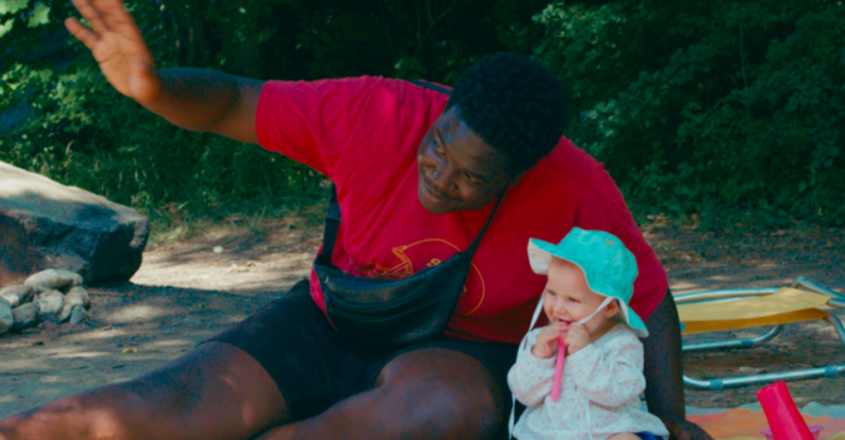
In response to this objective, and as a large part of its activities, the Aula FICX offers meetings with directors under the title "Conversatorios", in which the following filmmakers will be seated to discuss their work:
Friday 20th
8 p.m. Guillaume Brac, director of “À l'Abordaje!” (Festival opening film).
Saturday 21st
4 p.m. Irene Gutiérrez (director) y José Alayón (producer and director of photography) of “Entre perro y lobo” (Retueyos / Tierres en trance sections).
5.15 p.m. Jorge Thielen, director of “La fortaleza” (Tierres en trance section).
Sunday 22nd
5 p.m. Matías Piñeiro, director of “Isabella” (Albar section).
6.15 p.m. Julio Hernández Cordón, director of “Se escuchan aullidos” (Tierres en trance section).
Monday 23rd
4 p.m. Mercedes Gaviria, director of “Como el cielo después de llover” (Tierres en trance section).
5.15 horas p.m. Meritxell Colell y Lucía Vasallo, codirectors of “Transoceánicas” (Retueyos and Tierres en trance sections).
8.30 p.m. Javier Van de Couter, director of “Implosión” (Tierres en Trance section).
Tuesday 24th
4 p.m. Director Fon Cortizo, actress María Roja and music coordinator Xavier Bértolo of “9 Fugas” (Retueyos section).
5.15 horas. Diego Mondaca, director of “Chaco” (Tierres en trance section).
Wednesday 25th
4 p.m. Pedro Sara, co-director of “Amor sin ciudad” (Retueyos section).
5.15 p.m. María Alvarez, director of “El tiempo perdido” (Tierres en trance sección).
Thursday 26th
4 p.m. Ramón Lluís Bande, director of “Vaca mugiendo entre ruinas” (Albar sección).
5.15 p.m. Gabriel Velázquez and Manuel García, co-directors of “Subterranean” (Albar section).
8 p.m. Eryk Rocha, director of “Breve miragem de sol” (Tierres en trance section).
Friday 27th
4 p.m. Celia Viada Caso, director of “La calle del agua” (Tierres en trance section).
5.15 horas. Javier Tolentino, director, and Alejandra Mora, producer of “Un blues para Teherán” (closing film).
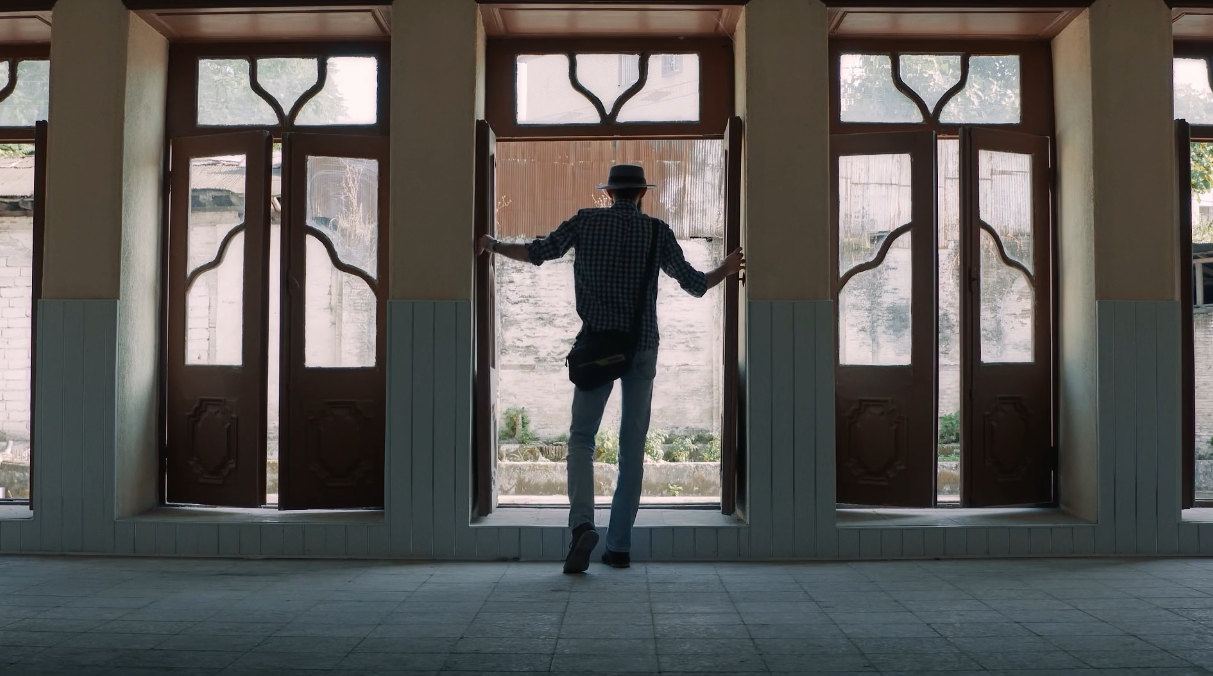
In addition to these talks on films in competition, we will have three meetings with three other filmmakers who this year will be decisive in the Festival's programme, either as special screenings or as spotlights.
Saturday 21st at 6.30 p.m.
A luxury meeting between our friend, the Argentinean critic and programmer Roger Alan Koza (member of our FIPRESCI jury this year) and the mythical Valeria Sarmiento, Chilean director, scriptwriter and editor who this year participates in our festival twice with two films co-directed with the master Raúl Ruiz: "The Wandering Soap Opera" and "The Widower's Tango and its Deforming Mirror", the first two parts of a trilogy that (we hope) will soon be closed with a third film entitled "Socialist Realism".
Tuesday 24th at 8pm.
Conversation with the Argentinean filmmaker Ana Katz, whose career is reviewing one of the Spotlights of this 58th edition of FICX.
Friday 27 at 6.30 p.m.
Talk with the master Philippe Garrel, director of "Le sel des larmes" (Esbilla section), by the journalist and critic Phillippe Engel.
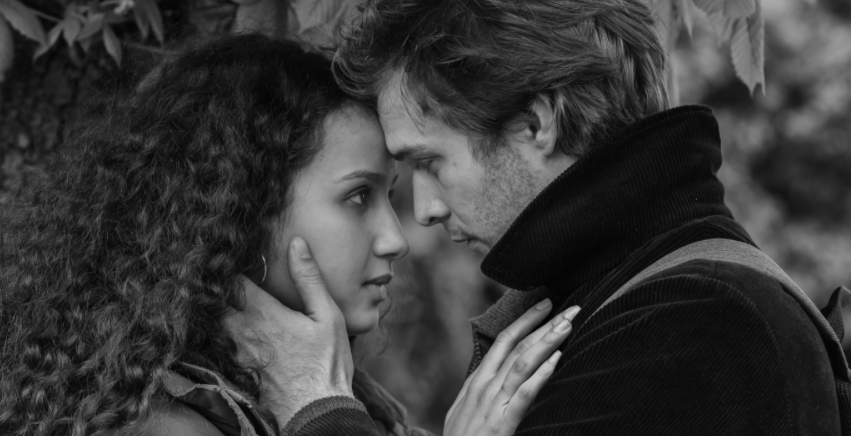
The Round Tables of the FICX Classroom bring together journalists, critics, producers, distributors and filmmakers to discuss different aspects of cinema. In addition to FICX.TV, they will also be broadcast on eldiario.es. In this edition of the Festival they will be the following:
Saturday 21st
8 p.m. "The re-legitimization of comedy"
A few years ago, as part of the FICX programme, a debate was generated between a sector of older critics and an advanced group of young people about the idea of contemporary comedy as a genre to be defended. The more veteran sector found the idea of talking about the Farrelly brothers, Greg Mottola or Judd Apatow as filmmakers with a strong authorial component unheard of. Years later, and given that this re-legitimisation of comedy has been unstoppable, we would like to see where we stand. And to address other questions such as the role that television stations and platforms have played in all of this, or what reception these (not so) new comedians receive from specialised critics and festivals.
Moderator: Beatriz Martínez (El Periódico).
Participants: Ana Katz ("Mi amiga del parque", "Los Marziano"), Paco León ("Carmina o revienta", "Arde Madrid"), Javier Ruiz Caldera ("Superlópez", "Tres bodas de más").
Sunday 22nd
7.15 p.m. "Denied memory"
In recent years, the cinema has played an important role in focusing on the work of those who struggle relentlessly against historical amnesia and the denial of memory. The premiere of the Mexican documentary "Volverte a Verte" at this year's FICX gives us the perfect excuse to create a space for dialogue in which the following filmmakers can exchange their experiences and approaches to the subject Ramón Lluís Bande (who in Escoréu, 24 December 1936 portrayed the work of searching for mass graves in the Asturian forests); Almudena Carracedo (who in "El silencio de otros" gave space to victims and survivors of the Franco regime to express their hopes in the face of the so-called "Argentinean lawsuit", as well as to confront the infamous "pact of oblivion" about the crimes they suffered); and Carolina Corral (director of "Volverte a ver", a film that portrays the journey of three Mexican women, mothers and relatives of disappeared persons, who decided to train as forensic experts in order to participate in the exhumation of more than 200 bodies that the Morelense Prosecutor's Office buried in secret).
The roundtable will be moderated by Arantza Margolles, president of the Association for the Recovery of Historical Memory (ARMH, in spanish) in Asturias.
Monday 23rd
7 p.m. "Cinema as an exercise in ghosts"
The idea of cinema as a ghostly phenomenon, as a stage for the appearance of ghostly presences that are not there, is not new. On this occasion we wanted to add some nuances to this idea and speak of cinema as an invocation of presences that were denied memory, or even of cinema as an exorcism of oblivion.
Participants: Pilar Monsell ("A revolt without images"), Celia Viada Caso ("The street of water"), Fon Cortizo ("9 Fugues")
Moderator: Irene Gutiérrez ("Between Dog and Wolf", "Exile Diaries").
Tuesday 24th
6.30 p.m. "The right to representation"
Or on the need for a first-person cinema when it comes to portraying certain realities, certain communities. It is not the same to film a villa in Buenos Aires with a team of 100 people and top stars as it is to portray it from the inside, from the everyday, with a pulse that day-to-day experience makes irreplaceable.
Participants: César González ("Lluvia de Jaulas"), Pedro Sara and Cristina Luna ("Amor sin ciudad"), Diego Mondaca ("Chaco").
Moderator: Laura García Higuera (eldiario.es).
Wednesday 25th
6.30 p.m. "In the end, even in the midst of the collapse of civilisation, we still need to think, debate and write about film"
How many crises can be concentrated on an object as simple as a film book? The crisis of the publishing sector, the crisis of film criticism, of cinema as a phenomenon linked to the experience of the cinema and a trigger of ideas among the so-called cinephilia... And yet, faced with such a panorama, the viewing of a film for many of us remains an experience linked to the idea of reflection and debate.
Participants: Pedro Vallín ("Damn Godard", Arpa Editores), Jaime Pena ("El cine después de Auschwitz", Ed. Cátedra) and Desirée de Fez ("Reina del Grito", Blackie Books)
Moderator: Fernanda Solórzano ("Mysteries of the Dark Room", Ed. Taurus).
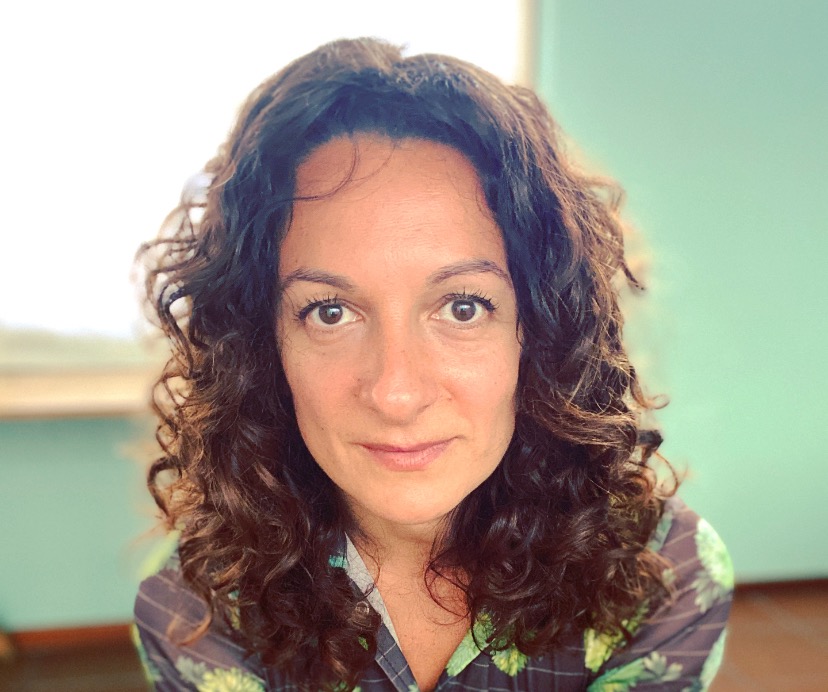
Desirée de Fez
The journalist and writer Desirée de Fès is offering a master class in this 58th edition entitled "What if there were a female gaze", divided into two sessions, on Saturday 21 and Sunday 22 at 12 noon. De Fes (El Periódico de Catalunya, Fotogramas, Marea Nocturna), which has just published the essay "Queen of the Scream", reviews - and reflects on - the presence of women in film criticism.
Maria de Medeiros
De Medeiros will deepen her work as a filmmaker and focus on one of her films as a director, "Captains of April", about the 1974 Carnation Revolution in Portugal, of which she was also co-writer, and which earned her one of the two Golden Globes from the Portuguese Academy for Best Actress, as well as the Golden Globe for Best Film. Sunday 22nd at 8.45pm.
Amalia Ulman
The filmmaker and artist Amalia Ulman offers in this 58th edition an online master class in which she will explain her work and its influences. Ulman will be showing extracts from her film "The Planet" as a premiere. "The Planet" is her first film as a filmmaker, a black and white indie satire that is currently in post-production and was filmed in Xixon during 2019. Wednesday 25 at 8 p.m.
The activities of the Aula FICX also include the presentation of the Woman of Cinema Award, an award given each year by the Women in Film Association in collaboration with the Gijón/Xixón Office for Equality.
The winner in 2020 is Sol Carnicero, who will collect the award in Madrid, at the headquarters of the Spanish Academy of Film Arts and Sciences. The award can be followed simultaneously via streaming on FICX.TV and the websites of Mujeres de Cine and the Academy. It will take place on Friday 27 at 8pm, and will include a talk.
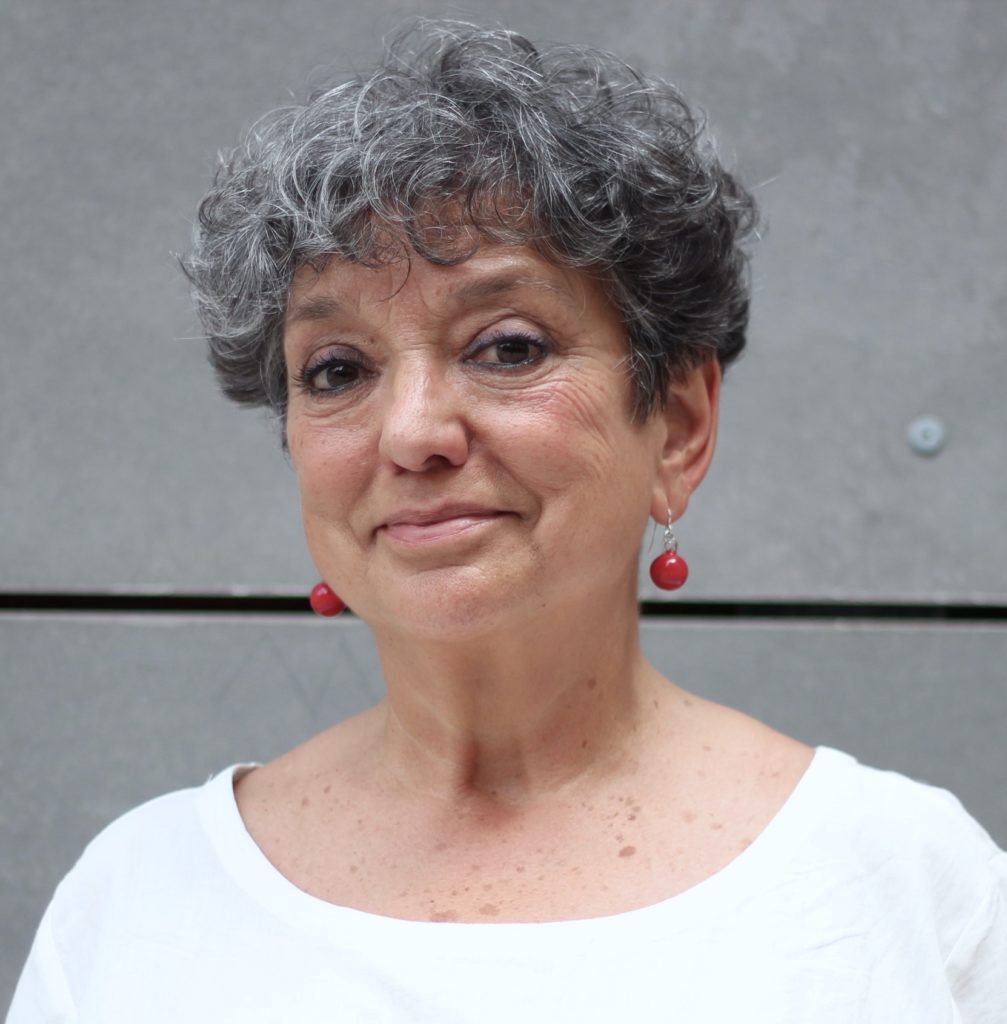
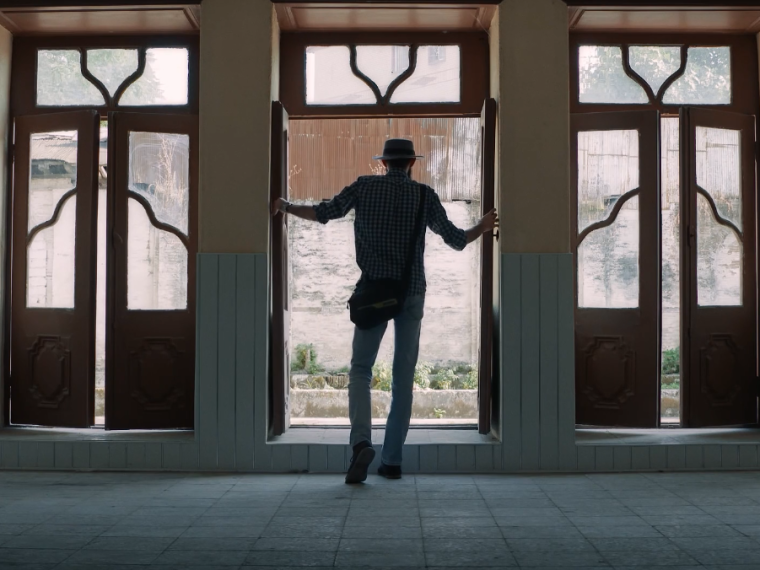
The programming of the 58th edition of FICX adds to the broadcasting of films on FICX.TV a series of activities grouped in the Aula FICX, which brings together round tables, talks, workshops, master classes and other events.
You will be able to follow them, as well as the films, on the Festival's website, which every day from November 20th to 28th will be chaining events open to public participation in order to overcome the distance imposed by the online celebration due to the health situation.